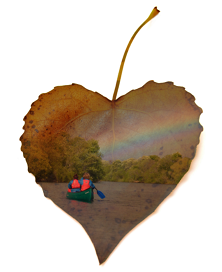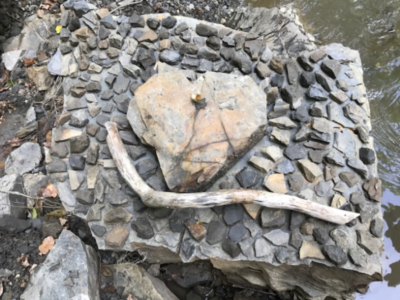Case Study
Nature, Nurture, Future : Well-being for people and planet through wilderness therapy and nature immersion.
Contact name
Jo Roberts
Institution name
The Wilderness Foundation UK
Region & country
Scotland/England
Summary
With declining wilderness and biodiversity we must advocate for their protection through a range of programmes that influence our general behaviours and the decisions of politicians and planners. In addition, the cost of mental health is rising exponentially across the world, overtaking the cost of heart disease. We can advocate for the wild by sharing evaluated programmes that demonstrate the impact of wild places, and nature connection, on human mental well-being. Beneficiaries of wilderness immersions/ therapy can learn to care for the natural world, implementing positive behaviours towards nature such as Leave No Trace ethics, conservation volunteering and advocacy for the protection of wild places and wild life.


Source: Wilderness Foundation website
Background of the project
We work with youth at risk experiencing lack of education, employment, drugs and alcohol addictions, domestic violence, trauma, self harm and a range of mental health issues. They suffered with depression, anxiety, anger and violence issues, self harm and potential suicide. Many were in trouble with the police or known to social services. Several were in foster care and struggling with relationships with family.
We identified that many of our youth had issues relating to trauma in childhood, attachment issues relating to family and had no connection with wider society that was positive. They had issues around belonging and identity. Many times in their lives they had been rejected and held negative and destructive belief systems and behaviours. Most had little positive contact with nature and the outdoors, and no interest in wildlife. They had poor self respect, little respect for others or nature.
Solution and actions taken
Participants were in need of a structured programme with a strong group process and individual support. We offer a programme of a minimum of six months, including two wilderness therapy trails, monthly group work, social events, volunteering, training, and weekly mentoring. Several take up counselling alongside the other interventions. We hold community celebrations, support the families, and support them in a community beyond graduation.
We research all steps of the programme.
The programme must be choice based for the young people. Nature is the main ingredient of the programme with our facilitation and feedback session backing up their experience and embedding new belief systems. We are consistent, tough loving, kind and generous. We try to work outdoors at all times as being in nature and the outdoors their mood, lowered cortisol levels that did not give up on them regardless of behaviours but they did need to commit to wanting change. Outdoor therapy is key.
Other institutions or parties involved
We work closely with University of Essex to evaluate our work. We have a partnership with a guiding company who work closely with us to provide the health and safety and expertise for the trails and adventure therapy work. We work with social services, the police, schools, and other charities to support their young clients.
Results
We have a very high outcome of improved mental health – such as mood, resilience, self efficacy, hopefulness linked to connection to nature. This is consistent through the years of the programme. Also 85% on average go into further education or employment who have graduated which is high.
many of our young people have learned tools and techniques to help themselves into the future when things get hard and report that they still use these sometimes ten years after completing the course.
Challenges
The nature of the young people’s issues are systemic and relate to family and social conditions. Sometimes it is very hard to engage the wider family to match the changes of the young people. We find that those on drugs or dealing drugs are the hardest to engage for the whole programme. Sometimes building a group ethic is hard before a trail brings everyone together.
Lessons learned
No group is the same and we as a team have to continually adapt ourselves.
nature is the greatest teacher of all and we are simply just working alongside her.
By offering kindness and respect, it usually comes back to you ten fold.
Health and safety are huge issues in this work and you must have done your preparation and support plans in advance. If something goes wrong it can be serious for your client and your organisation.
Contact name
Jo Roberts
Institution name
The Wilderness Foundation UK
Website(s)
